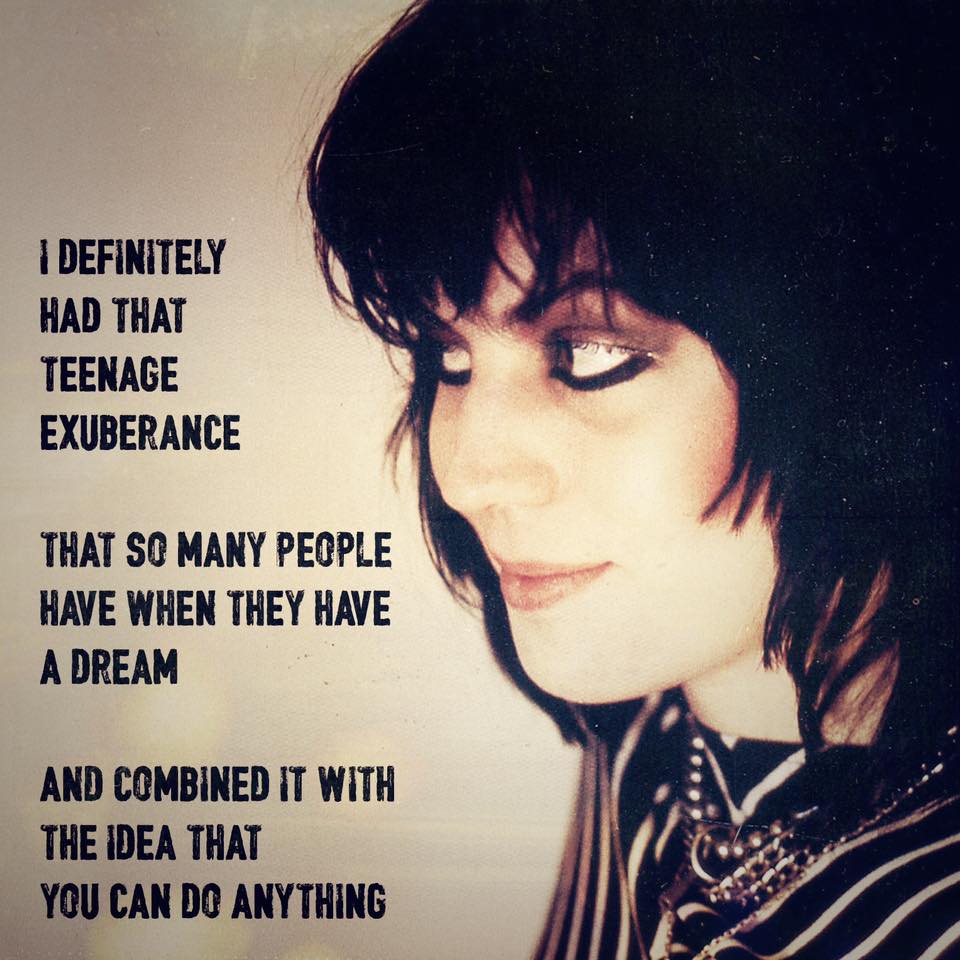Joan Jett is my hero.
Yes, there’s her music, live performances, and fantastic attitude. But the main reason why I love her is that she’s self-made. After an enormous amount of rejections from just about everyone in the music industry, she rolled up her sleeves, formed her own music label, and did it all herself–grinding it out day after day.
History of Finance

When Jett founded Blackheart Records with Kenny Laguna in the 1980s, the traditional model of record labels was booming. Record labels had the financing, marketing, and radio connections to make or break any artist.
Labels were the gatekeepers
Much of their financial success was because if you wanted to buy a particular song, you had to purchase the whole record or CD.
When amortized over a full album, marketing and production costs are much lower on a per-song basis. So the record companies made loads of money.
Every label rejected Jett
Founding her label, she had to build her audience (marketing) and find the money to finance the recording of her music. By taking a page from the books of artists in the pre-album era (the 1950s), she constantly toured and performed at just about every venue possible. Couple her work ethic with the writing of great songs and an electric live show, and she was successful at what we now call guerrilla marketing.
She financed her music through touring revenue and music sales. Before record label 360 deals, she had already discovered that touring was the linchpin to success.
Then came along the web and MP3.com: everything changed. Record labels started their long slide into oblivion. Artists could now communicate directly with their audiences and sell music one track at a time. The benefits to consumers: no need to purchase an entire album when all you wanted was a particular song.
Today
More often than not, it’s the soon-to-be successful artists who hire specialty individuals and companies. In many cases, this may include simply hiring a publicist or marketing firm to help get the word out about the artist’s work. There are currently differences in these areas of expertise, but the differences are diminishing.
Financing used to be the other area where record labels were useful. They acted as venture capital specialists, often at a very steep price. Today, almost every state in the U.S. has angel-level venture capitalists. Often wealthy individuals, or teams of wealthy individuals, have particular areas of interest (entertainment, technology, education) which they invest. The benefit of working with them: reasonable fees compared to record labels, significant industry contacts, and solid business advice.
Yet, the free marketplace, via websites such as Kickstarter, now allows anyone to become part of a venture funding team. Crowdfunding is the future for funding any startup because the benefits are enormous. With one well-run Kickstarter campaign, you can build an audience and finance a new product. Granted, it takes approximately a year’s worth of work to launch a successful campaign and time and/or money to create video and photographic assets, but there are no more gatekeepers to potential success.
Joan Jett would have loved Kickstarter in the 1980s.
Photography credits |
Tom Libertiny (Cover of Caroline Six)
Joan Jett
Leave a Reply
You must be logged in to post a comment.